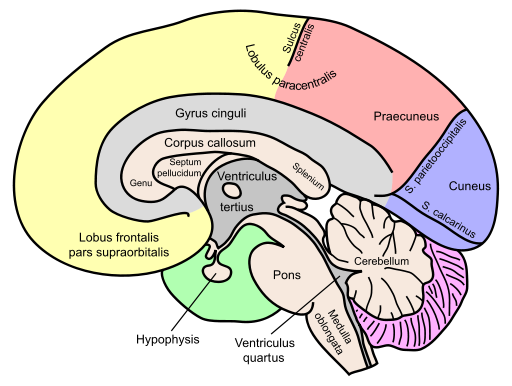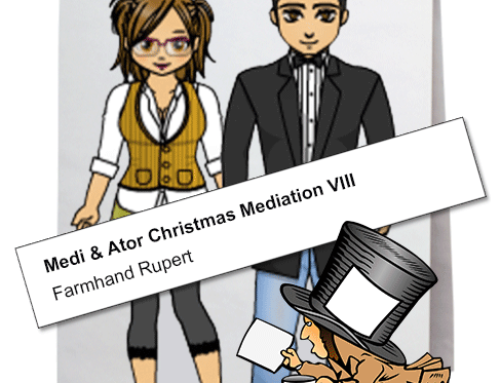Sometimes our brain really behaves tricky, the more as this stays undiscovered. Is it a problem? Yes it is.
Perception is an issue in mediation. Understanding why perception is incomplete and sometimes misleading is what every mediator should take into consideration.
This ALZHEIMER’S EYE TEST shows again the borders of our brain and the willingness to be cheated.
This test has been distributed and discussed on the web. The source is unknown. We welcome you to also check your brain’s limits.
ALZHEIMER’S EYE TEST
Your task is to
count every “F” in the following text:
FINISHED FILES ARE THE RE
SULT OF YEARS OF SCIENTI
FIC STUDY COMBINED WITH
THE EXPERIENCE OF YEARS…..
HOW MANY ‘F’s?
Count them again.
Don’t look below before counting!
OK you are WRONG, THERE ARE 6 “F”.
How we can know that you were wrong? Most people are. Go back and try to find the 6 ‘F’s once more before you scroll down. Do you see them now?
Now we are told that the reason why we cannot see the correct number of “F”s is because our brain is not able to process an “of”.
Can it be?
You can find evidence when reading the text again where all the “F”s have been exposed by bold and italic letters. Sure you will see them now, though there still are “of”s.
FINISHED FILES ARE THE RE
SULT OF YEARS OF SCIENTI
FIC STUDY COMBINED WITH
THE EXPERIENCE OF YEARS…..
Of course our brain is able to recognize an “of”. You just did. And surely you saw an “f” in that “of”. But it was a single word. As such it became better visible. In a larger context beside other words that “of” gets lost. Our brain tries to be quicker than the eyes. Those little letters shouldn’t become a break. “Why the hell should I know the number of “F”s in a texture?” the brain tries to persuade itself. The amazing fact is that we – despite of carefully reading and concentrated counting – did not find all of those “F”s. Maybe the processor indeed is not working properly?
More convincing is the idea that our brain simply is distracted. It is programmed to immediately assess a situation in order to take the decision as quickly as possible. That’s a surviving concept of nature. Where the chicken starts to philosophize: “Hawk, wouldn’t it be nice if we could be friends?” while watching the hawk circling in the air, it will not survive as the hungry hawk didn’t wait the answer while looking for prey. Hawk and chicken might have a communication problem assessing the situation wrongly as they couldn’t commit their intentions to each other. Not knowing, we learn it is better to not think but to act. To avoid too much time consuming and life risking thinking, our brain is trained to capture only what is necessary. Everything else would cost too much time jeopardizing our survival.
How does our brain manage allowing quick decision-taking?
In this ALZHEIMER’S EYE TEST our brain tried to focus what is important only. These are leading words. We see the “F” in “Files” easily as this is a leading word. Attention is caught by capital letters, main words and the building of sentences. Those small words like “of” in between something are liked to be overseen. They just do not look important enough as the sense has been understood already without that bloody “F”. The insight is that our brain could understand the sense but it didn’t succeed the task. Hence it didn’t understand the sense.
Does it mean that brain only knows survival strategies and that it fails where survival is not a question? It looks so.
If that is true we learn that our brain is not ready for culture. In culture the survival strategy should not be to quickly decide for survival. There is no hawk circling in the air. We should take the time to carefully observe and watch. We even could communicate with each other, except we are chickens and hawks.
Most dangerous it is that the brain doesn’t show us the limits. We cheat ourselves to know everything and to be informed sufficiently for decision taking. How can we be sure? Even when reading the text several times we haven’t been able to detect all the “F”s. There has been no warning. That’s the biggest danger as we cannot know what we do not see.
Do we now risk missing information?
The key to this answer is to think if it is better to recognize only some (how many?) or all “F”s. If you see them all, you might decide what is important or not. Thus it is no question to better know everything. Only if we can see all the 6 “F”s we know if we miss something when ignoring some of them.
Let’s try this.
How many “F”s do you recognize now?
FINISHED FILES ARE THE RE
SULT OF YEARS IF SCIENTI
FIC STUDIES ARE COMBINED
WITH THE EXPERIENCE OF
YEARS …..
Still just 5? You saw that “IF” for sure but probably missed an “OF” though the focus have been set on it and even though the “F”s have been located before.






Leave A Comment
You must be logged in to post a comment.